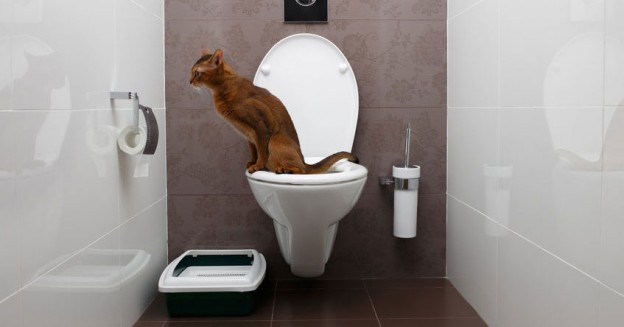Avoid Clogs and Damage: Don't Flush Cat Poop Down Your Toilet - Professional Recommendations
Avoid Clogs and Damage: Don't Flush Cat Poop Down Your Toilet - Professional Recommendations
Blog Article
How do you really feel about Can You Flush Cat Poop Down The Toilet??

Intro
As feline proprietors, it's essential to bear in mind exactly how we throw away our feline close friends' waste. While it might seem convenient to flush feline poop down the bathroom, this method can have harmful consequences for both the atmosphere and human wellness.
Alternatives to Flushing
The good news is, there are safer and much more liable means to get rid of feline poop. Think about the adhering to alternatives:
1. Scoop and Dispose in Trash
The most typical technique of disposing of feline poop is to scoop it right into a naturally degradable bag and toss it in the garbage. Be sure to utilize a dedicated litter scoop and throw away the waste without delay.
2. Use Biodegradable Litter
Choose naturally degradable feline litter made from products such as corn or wheat. These litters are eco-friendly and can be safely thrown away in the trash.
3. Hide in the Yard
If you have a backyard, think about hiding pet cat waste in a marked location far from vegetable gardens and water sources. Be sure to dig deep sufficient to prevent contamination of groundwater.
4. Mount a Pet Waste Disposal System
Purchase a pet dog waste disposal system especially designed for feline waste. These systems use enzymes to break down the waste, minimizing smell and ecological influence.
Wellness Risks
Along with environmental worries, purging cat waste can likewise pose health dangers to humans. Cat feces may include Toxoplasma gondii, a bloodsucker that can cause toxoplasmosis-- a potentially serious disease, especially for pregnant women and individuals with damaged body immune systems.
Ecological Impact
Flushing feline poop introduces damaging virus and parasites into the supply of water, positioning a substantial risk to aquatic communities. These impurities can negatively affect aquatic life and compromise water high quality.
Final thought
Responsible pet dog ownership prolongs beyond supplying food and shelter-- it likewise involves proper waste administration. By refraining from purging feline poop down the bathroom and selecting different disposal methods, we can minimize our ecological impact and protect human health.
Why Can’t I Flush Cat Poop?
It Spreads a Parasite
Cats are frequently infected with a parasite called toxoplasma gondii. The parasite causes an infection called toxoplasmosis. It is usually harmless to cats. The parasite only uses cat poop as a host for its eggs. Otherwise, the cat’s immune system usually keeps the infection at low enough levels to maintain its own health. But it does not stop the develop of eggs. These eggs are tiny and surprisingly tough. They may survive for a year before they begin to grow. But that’s the problem.
Our wastewater system is not designed to deal with toxoplasmosis eggs. Instead, most eggs will flush from your toilet into sewers and wastewater management plants. After the sewage is treated for many other harmful things in it, it is typically released into local rivers, lakes, or oceans. Here, the toxoplasmosis eggs can find new hosts, including starfish, crabs, otters, and many other wildlife. For many, this is a significant risk to their health. Toxoplasmosis can also end up infecting water sources that are important for agriculture, which means our deer, pigs, and sheep can get infected too.
Is There Risk to Humans?
There can be a risk to human life from flushing cat poop down the toilet. If you do so, the parasites from your cat’s poop can end up in shellfish, game animals, or livestock. If this meat is then served raw or undercooked, the people who eat it can get sick.
In fact, according to the CDC, 40 million people in the United States are infected with toxoplasma gondii. They get it from exposure to infected seafood, or from some kind of cat poop contamination, like drinking from a stream that is contaminated or touching anything that has come into contact with cat poop. That includes just cleaning a cat litter box.
Most people who get infected with these parasites will not develop any symptoms. However, for pregnant women or for those with compromised immune systems, the parasite can cause severe health problems.
How to Handle Cat Poop
The best way to handle cat poop is actually to clean the box more often. The eggs that the parasite sheds will not become active until one to five days after the cat poops. That means that if you clean daily, you’re much less likely to come into direct contact with infectious eggs.
That said, always dispose of cat poop in the garbage and not down the toilet. Wash your hands before and after you clean the litter box, and bring the bag of poop right outside to your garbage bins.
https://trenchlesssolutionsusa.com/why-cant-i-flush-cat-poop/

I have been very taken with Don’t flush cat feces down the toilet and I really hope you liked my blog posting. Sharing is caring. Helping people is fun. I am grateful for your time. Don't forget to come by our website back soon.
Contact Us Report this page